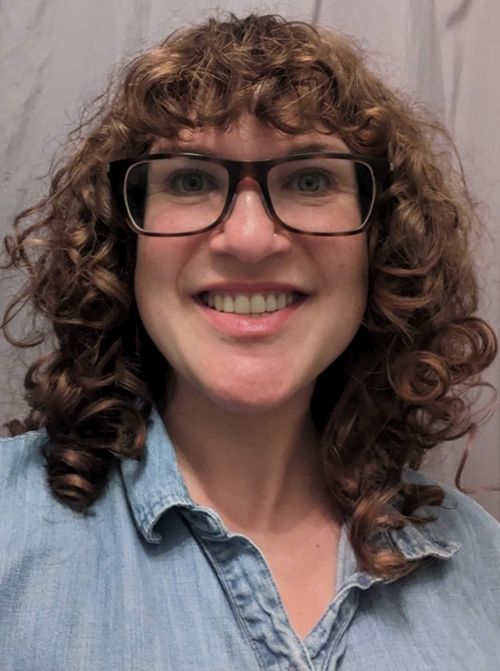Naomi Dolgoy to join Rehabilitation Medicine as assistant professor in the Department of Occupational Therapy in April 2024
14 August 2023

Naomi Dolgoy
A clinical researcher, occupational therapist and certified lymphatic therapist, Naomi Dolgoy will be joining the Faculty of Rehabilitation Medicine as an assistant professor in April 2024. Prior to joining the faculty, she held a Mitacs Accelerate postdoctoral fellowship at the University of Alberta and Cybera Technologies. Dolgoy was also working with Alberta Health Services in conjunction with the Glenrose Rehabilitation Hospital’s Rehabilitation Research, Innovation and Technology program as the rehabilitation technology leader for Foothills Hospital and Calgary zone.
Dolgoy is a PhD graduate of U of A’s Faculty of Rehabilitation Medicine, has a master’s degree in occupational therapy from the University of British Columbia and an honours BA from McGill University.
We caught up with Dolgoy to find out more about her, her research interests, and what she’s looking forward to in her new role at U of A.
What first inspired you to enter the field of rehabilitation medicine and occupational therapy?
I was drawn to occupational therapy because it is a profession that considers an individual, their needs and the world they live in. I love how the work we do is both so practical and so creative.
Can you explain your area of research?
I focus on cancer rehabilitation and functional outcomes.
Why did you choose to pursue this research topic?
I wanted to work in cancer care because of the widespread effects of cancer and the potential for occupational therapy to make a positive difference. Early in my career, it became apparent that there was very limited clinically relevant rehabilitation research; I saw an opportunity to support patients and improve care through research.
How do you hope your research will be of benefit to people?
Progressing rehabilitation research in cancer will lead to more effective care opportunities for patients, improved clinical education and more efficient delivery of care services. Because there are so few occupational therapists in cancer research, I hope my research will serve as a foundation for developing rehabilitation programs, learning opportunities and future research. I hope that one day, rehabilitation (and occupational therapy in particular) will be considered part of standard care in oncology.
Have you ever had a role model who significantly impacted your career?
I have been most impacted by cancer patients. I am incredibly moved by those individuals who chose to participate in research, with the approach that sharing their experiences and offering their time could improve the outcomes for others.
What is the most rewarding part of your work? And the most challenging?
The most rewarding part of this work and the most challenging part of this work are two sides of the same coin: occupational therapy is not yet well established in cancer care. Seeing the real-world impact and the human connection when we improve or progress health care through research is so rewarding. Having to work so hard to advocate and create spaces for research can be very challenging.
What drew you to the University of Alberta?
Working in Alberta Health Services as an occupational therapist, I knew I wanted to pursue clinically relevant, implementation research in our province. I completed my doctorate under the supervision of Dr. Margie McNeely at the University of Alberta. Being part of U of A Rehabilitation Medicine as a graduate student offered me an opportunity to be part of the amazing interdisciplinary work happening at the university. I saw great potential for developing cancer rehabilitation research and education within the occupational therapy program.
What are you most excited about in your new role in the faculty?
I am so excited to develop an occupational therapy-driven cancer rehabilitation lab.
What’s the No. 1 piece of advice you would give to students?
Stay curious! Plan to keep learning even after you graduate — knowledge-seeking is a rewarding, lifelong engagement.
Can you tell us something others would be surprised to learn about you?
I strongly dislike checking luggage when travelling. I will come up with many creative solutions to make all my things fit into a carry-on bag.